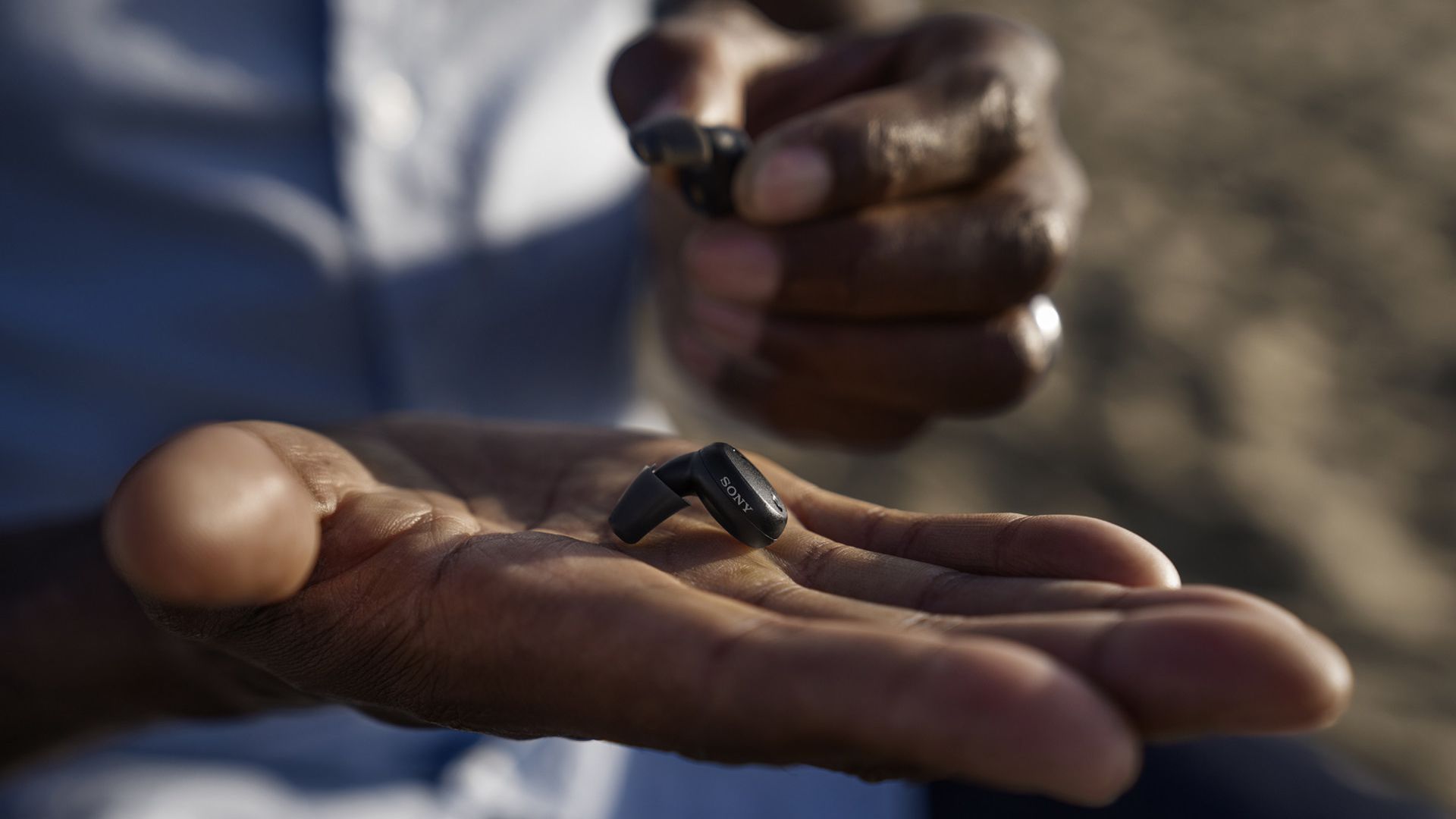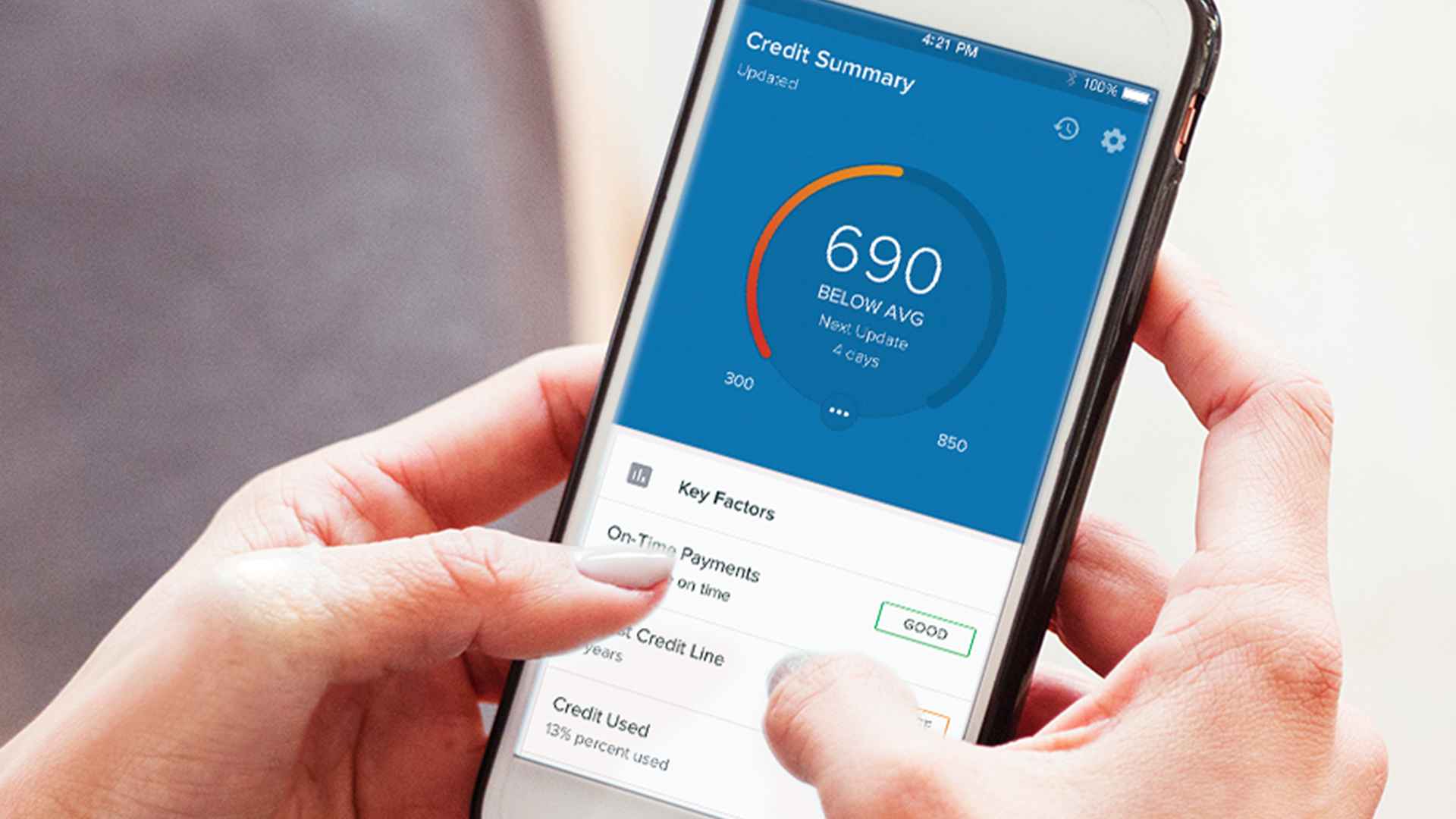| | | | | | | Presented By Capital One | | | | Axios What's Next | | By Alex Fitzpatrick, Jennifer A. Kingson and Joann Muller · Oct 18, 2022 | | A major change is happening in the world of hearing aids, Alex reports, with big implications for anyone who needs an aural boost. Today's newsletter is 1,075 words ... 4 minutes. | | | | | | 1 big thing: Hearing aids go OTC |  | | | Sony's CRE-E10 self-fitting OTC hearing aids. Photo courtesy of Sony | | | | Hearing aids can now be sold over the counter in the U.S., Alex Fitzpatrick reports, a major change that stands to improve access and innovation — though isn't without some risk. Why it matters: Historically, getting hearing aids can be a time-intensive and sometimes costly process, involving trips to the doctor's office that aren't always covered by insurance. (Medicare, for instance, doesn't cover hearing aids or fitting exams.) - About 15% of American adults report at least some hearing trouble, per the National Institutes of Health. Nearly 30 million "could benefit from using hearing aids."
What's happening: The U.S. Food and Drug Administration announced the rule change back in August, but it didn't take effect until this week. - Now, people with mild to moderate hearing issues can buy hearing aids without first seeing their doctor, getting a prescription or being fitted by a professional.
- The move could save people nearly $3,000, the White House says.
The rule changes are already sparking innovation in the space. Sony, for example, recently unveiled a pair of high-tech hearing aids with features similar to what's found in the company's well-reviewed headsets and earbuds. - They can sync with a smartphone app via Bluetooth so users can customize certain settings, or perform a "self-fit."
Meanwhile, retailers nationwide are getting in on the action, as Axios' Kelly Tyko reports. - Walmart, CVS, Walgreens, Best Buy and others are all selling OTC hearing aids, with prices ranging from about $200 to $1,000 and up.
Yes, but: Some are concerned that if people get hearing aids without first consulting an audiologist, they might not get the exact device or treatment they need. - "I hate to use the words 'buyer beware,' so instead it's 'buyer be educated' about what you're doing, what your needs are," Kate Carr, president of the trade group Hearing Industries Association, told NPR.
- Plus, some OTC devices still carry a hefty price tag — Sony's two offerings, for example, go for $999 and $1,299.
💬 Alex's thought bubble: Obviously you want people to get the care they need — but having watched many an older relative struggle to hear at family shindigs because they refused to go through the rigamarole of getting hearing aids, anything that makes that process easier is probably for the best. What's next: The new rule essentially created a new marketplace overnight, and it'll take time for retailers and manufacturers to see what works and what doesn't. - If this winds up being a profitable market, expect a wider variety of options — and potentially lower prices — down the road.
The big picture: That companies like Sony are dropping sleek, earbud-style options could further reduce the stigma surrounding hearing aids — if they look like everyday earbuds, wearers will blend right in. Share this story. |     | | | | | | 2. The 21st century license plate |  | | | Photo courtesy of Reviver | | | | California drivers can now replace their old-school license plates with digital versions, Axios' Megan Rose Dickey reports. State of play: California Gov. Gavin Newsom recently signed a law making a pilot program that began in 2018 official. - About 17,000 Golden State drivers already use digital license plates, which are essentially tablets that display a car's plate number and registration expiration date.
The big selling point: For drivers with digital plates, their registration is renewed automatically — no DMV trip required. - Plus, owners can set up personalized messages at the bottom of their plates.
Yes, but: The battery-powered plates cost $19.95 per month, or $215.40 for a four-year agreement. Critics have raised privacy concerns, the San Francisco Chronicle reports. - However, tracking systems are prohibited unless the plates are meant for fleet or commercial vehicles.
Of note: If a car is stolen, the owner can use the app to add a message to the license plate that says: STOLEN. Would you swap for digital license plates? Let us know why or why not at whatsnext@axios.com. Read the rest. |     | | | | | | 3. Ye wants Parler |  | | | Photo: Edward Berthelot/GC Images | | | | Ye, formerly known as Kanye West, plans to acquire Parler, a Twitter-like social media app that has become a haven for conservatives, Axios' Sara Fischer reports. Why it matters: Ye said in a statement that he's buying the platform to ensure that people with conservative opinions "have the right to freely express ourselves" online. - Earlier this month, Ye's Instagram and Twitter accounts were restricted in response to his antisemitic posts.
Details: Parler's parent company says it has entered into "an agreement in principle" to sell the app to Ye for an undisclosed amount. Catch up quick: Parler was created in 2018 as a free speech alternative to apps such as Twitter and Facebook. Yes, but: As the Elon-Twitter saga makes abundantly clear, announcing a deal is light years away from actually closing one. Share this story. |     | | | | | | A message from Capital One | | Millions of Americans are being shut out of opportunities | | |  | | | | Good credit history may improve a person's ability to: - Borrow money.
- Get a credit card.
- Receive a mortgage or auto loan.
- Rent an apartment.
Okay, but: About 28 million Americans are credit invisible. Another 21 million are unscorable. See how Capital One is helping. | | | | | | 4. Neurons learn to play Pong |  | | | Pong controlled by a layer of neurons in a dish. Credit: Kagan et. al, Neuron | | | | Scientists recently trained a group of neurons to play Pong, Axios' Alison Snyder reports. Why it matters: The experiment offers a new way to study how the brain works — and to potentially better understand epilepsy and other diseases. Details: Researchers at Melbourne-based startup Cortical Labs grew mouse and human neurons on a "DishBrain" — an array of electrodes that can read neurons' electrical activity, allowing them to control the classic video game's paddle. - The 800,000 neurons learned to play within 5 minutes — and, as time went on, rallied longer.
The big picture: "The results shouldn't be surprising because neurons are built to process information," says Brett Kagan, Cortical Labs' chief scientific officer. - Cortical wants to develop next-generation computer chips that harness neurons' computational power for better AI.
Share this story. |     | | | | | | 5. One fun thing: (Re)learning to fly |  | | | Photo: Alex Fitzpatrick | | | | Alex here. This past weekend, I flew a small airplane for the first time in about 15 years — and did pretty well! - I got my private certificate in high school, and was on track to make a career of it. But I went in a different direction and couldn't afford to keep flying recreationally.
Yes, but: I recently joined a flying club at the nearby airport, where members split airplane ownership and operational costs. That helps keep things affordable — at least compared to renting. On Saturday, I got checked out in the club's four-seat, 160HP Cessna 172P. - Maneuvers like steep turns, slow flight and stalls came right back, but I definitely need more practice on the radio.
- I also had what was probably my smoothest-ever landing.
The big picture: I'm fortunate to be in a place where I can get back to doing something I've always loved. - If there are any other pilots reading this — or if you're flying-curious — feel free to drop me a line.
|     | | | | | | A message from Capital One | | What it means to be credit invisible | | |  | | | | A low or nonexistent credit score makes it hard, even impossible, to achieve long-term financial well-being. The solution: Capital One's Credit Building Program connects people across the country to products and resources to help them to save money, build credit and manage debt. Learn more. | | | | Big thanks to What's Next copy editor Amy Stern. Was this email forwarded to you? Get your daily dose of What's Next by signing up here for our free newsletter. |  | | Are you a fan of this email format? It's called Smart Brevity®. Over 300 orgs use it — in a tool called Axios HQ — to drive productivity with clearer workplace communications. | | | | | | Axios thanks our partners for supporting our newsletters. If you're interested in advertising, learn more here.
Sponsorship has no influence on editorial content. Axios, 3100 Clarendon Blvd, Arlington VA 22201 | | | You received this email because you signed up for newsletters from Axios.
Change your preferences or unsubscribe here. | | | Was this email forwarded to you?
Sign up now to get Axios in your inbox. | | | | Follow Axios on social media:    | | | | | |










No comments:
Post a Comment